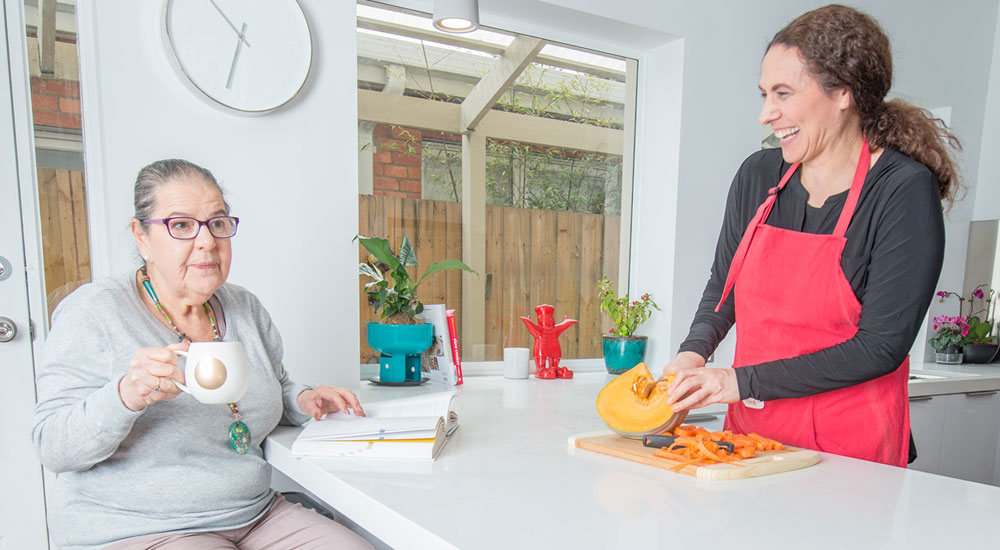Most people want to stay in the comforts of their own home when they grow older.
However, dealing with day-to-day activities will become increasingly challenging to a point where external assistance is required. Many seniors would welcome the extra help in the form of home-care services (so long as they get to continue staying at their own home), but there is a good bunch of elders who downright resist the idea, too.
As a family member, it can be rather disheartening to see this especially when you’re doing it with their best interests in mind. Nevertheless, it is perhaps worthy to understand where your parents are coming from first (hence the resistance) and you will know better on how to deal with them.
Why the Resistance?
First of all, a large majority of parents are dealing with some kind of losses in varying degrees. It can be from gradual loss of physical mobility to mental abilities (i.e. dementia, cognitive function etc.), or simply the loss of a general sense of independence.
Whatever the loss is, it is not something that is easy to accept. It thus creates emotional distress and many turn this into anger and some sort of unreasonable stubbornness, thereby refusing all forms of help. If you are to think about it, it all stems from fright and vulnerability, really.
The vulnerability of having to give up the final control of their life, the reluctance to admit old age, the idea of having to depend on someone to carry out daily life – the whole concept is intimidating and hard to accept. Further, many parents do not want to be a “burden” to their children and family especially in the financial sense. Do you now see why the resistance to home care services?
That being said, there are a few things that you can do to help ease them into the idea of home care services, and thereby finally accepting assistance from it.
How to Deal with It
1. Communicate
Tell your parents honestly why home care services are good for them, and why you need them. The key is to let them understand that a home caregiver is there to assist them rather than take away their control of life. Quite the opposite in fact, home care will help them stay independent at home longer instead of having to go to a facility so remind them of this.
Talk about how home-care services will help you also. How not having to worry about them missing meals or being lonely at home when you’re at work give you that invaluable peace of mind. Explain to them that they will be needing support no matter how much they object to it and if it doesn’t come from a home carer, it will have to come from you. Parents likely do not want to make their children’s life difficult so if they understand your needs as well, you may see their resistance slowly decrease.
Also, do remain in touch with them especially the first few months of adjusting into home care services. Call regularly to check up on them and see how they are doing. Don’t make them feel like they’ve been isolated and casted aside to a new caregiver.
2. Choose the right time
Choosing the time to communicate all the above is vital too. You want to avoid times when they are frustrated or are in the midst of a medical condition.
The latter especially, as you may be inclined to look for home care services at times like these but doing so will only make it harder for your parents to accept it. This is because such is the time that they are most vulnerable. They might be angry, sad or even ashamed about what’s going on with them, thus is much more resilient to accept the fact that they need assistance.
So, choose a time when your parents are calm and comfortable. Wait till the dust has settled and invite them to be active during the discussion. This way, they will feel like their wishes are being respected instead of just being told of what to do.
3. Visit regularly
Again, do not give them the impression that they are now being deserted and left with just a caregiver at home. Nothing shows how much they are cared for than spending time together – go for a walk, have coffee together whenever you can.
With a caregiver now in place, there is no longer the need for you to be one when you visit your aging parents so you can focus on spending true quality time with them as a son or daughter. Take the opportunity to make memories that both of you can cherish forever.
4. Stick to a routine
If your parents have a daily routine, for instance, taking a walk after lunch every day, make sure you communicate that to her caregiver so that she can maintain that routine. Have as less a disruption to their daily life as possible as this will give them more comfort and security.
If they don’t have a routine, try creating one for them. You can start from their hobby or interest – inform your home care agency so that they can allocate a caregiver that shares the same interests and this will make their time spent together more enjoyable.
Conclusion
Lastly, adjusting to a new caregiver will take time. Resistance and frustration will happen so you need to be patient. Put yourself in their shoes and listen to what they have to say. Try to understand where they are coming from so that you can better help them if they struggle.
Be patient all the way and do not get disheartened.






